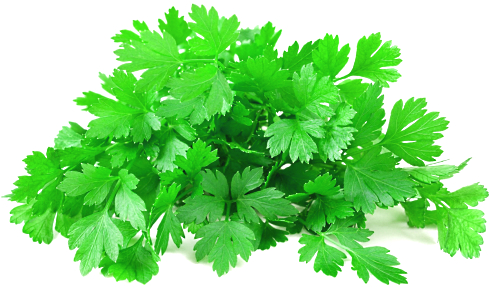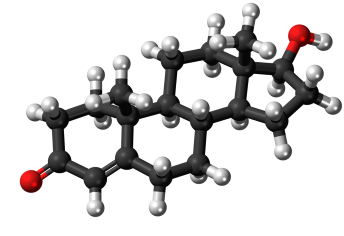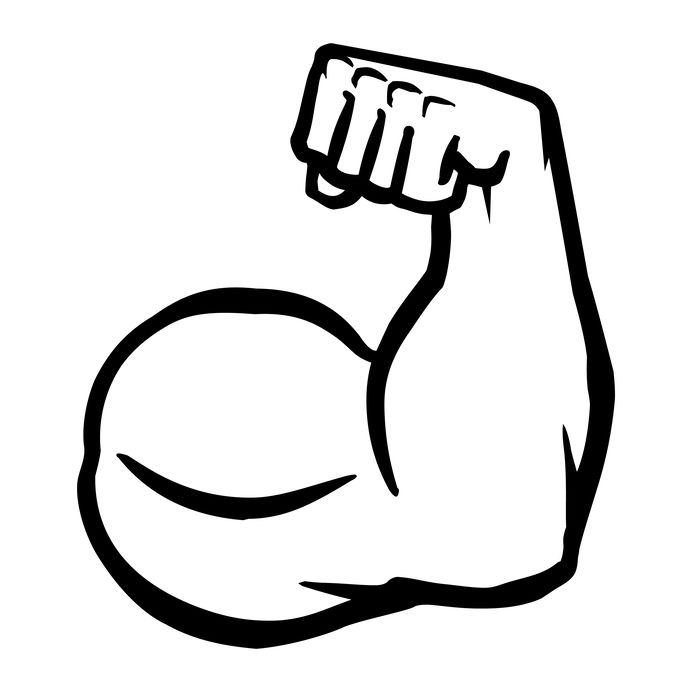How a flavonoid in parsley boosts testosterone levels
Everyday vegetables such as celery, onions and parsley contain testosterone-enhancing substances that, as we age, prevent our testosterone production from declining. Researchers at Texas Tech University discovered this. In the Journal of Nutritional Biochemistry they describe the experiments they did with apigenin, a promising testosterone booster, that's found in high quantities in parsley [structural formula shown here].
Testosterone & aging
The researchers at Texas Tech are working on ways of reducing the damage caused by the aging process, which includes searching for techniques that reduce the decline in testosterone levels in older men.A declining testosterone level leads to loss of muscle mass, bone mass and libido, but it also speeds up the development of neurological problems such as Alzheimer's. Epidemiological studies have shown that a high testosterone level protects men against this disease. [Neurology. 2004 Jan 27;62(2):188-93.] According to animal studies, this is because testosterone inhibits the growth of beta-amyloid peptides and the hyperphosphorylation of the tau protein in the brain. [J Neurochem. 2003 Nov;87(4):1052-5.]
The reduction of testosterone production in aging men, according to the researchers, is partly the result of the increase in activity of the enzyme cyclooxygenase-2 [COX2] in the testes. The COX2 enzyme plays a role in the conversion of metabolites of n-6 fatty acids into thromboxane A2. [Figure]The testosterone producing Leydig cells in the testes have receptors for thromboxane A2. Via these receptors thromboxane A2 activates the protein DAX-1, which in turn inhibits the steroidogenic acute regulatory [StAR] protein. The StAR protein plays a key role in the conversion of cholesterol into testosterone. So it's no surprise that administering a COX2 inhibitor boosts the testosterone level in elderly rats. [Endocrinology. 2003 Aug;144(8):3368-75.]
Apigenin
Apigenin is a naturally occurring substance that scuppers the working of the thromboxane-A2 receptor, the Texans discovered when they screened a large number of substances. Apigenin is found in vegetables and herbs.The best sources are parsley and celery. 100 g parsley contain 300 mg apigenin and 100 g of celery leaves contain 56 mg. A bit of Google work and you'll find supplements that contain 50 mg apigenin per capsule.
[FONT="]
[/FONT]

[FONT="]
[/FONT]
In vitro study
The figure below shows what happens if you expose Leydig cells from the testes of mice to apigenin in test tubes. The production of the steroid hormones testosterone and progesterone rises, as does that of the StAR protein. The presence of the second messenger cAMP is a precondition for this.
[FONT="]
[/FONT]

[FONT="]
[/FONT]
Conclusion
"The present study demonstrates that apigenin is able to enhance StAR gene expression and steroid hormone production in mouse Leydig cells by blocking the thromboxane A2 receptor and reducing the transcriptional repressor DAX-1", the Texans conclude.
"It also suggests the potential for a dietary approach for the enhancement of steroidogenesis in aging Leydig cells. Further studies are needed to examine the efficacy of dietary apigenin on testosterone biosynthesis and its effects on the health of aging males."
[FONT="]
[/FONT]

[FONT="]
[/FONT]
Source:
J Nutr Biochem. 2011 Mar;22(3):212-8.
Everyday vegetables such as celery, onions and parsley contain testosterone-enhancing substances that, as we age, prevent our testosterone production from declining. Researchers at Texas Tech University discovered this. In the Journal of Nutritional Biochemistry they describe the experiments they did with apigenin, a promising testosterone booster, that's found in high quantities in parsley [structural formula shown here].
Testosterone & aging

|
Apigenin

|
[FONT="]
[/FONT]

[FONT="]
[/FONT]
In vitro study
The figure below shows what happens if you expose Leydig cells from the testes of mice to apigenin in test tubes. The production of the steroid hormones testosterone and progesterone rises, as does that of the StAR protein. The presence of the second messenger cAMP is a precondition for this.
[FONT="]
[/FONT]

[FONT="]
[/FONT]
Conclusion
"The present study demonstrates that apigenin is able to enhance StAR gene expression and steroid hormone production in mouse Leydig cells by blocking the thromboxane A2 receptor and reducing the transcriptional repressor DAX-1", the Texans conclude.
"It also suggests the potential for a dietary approach for the enhancement of steroidogenesis in aging Leydig cells. Further studies are needed to examine the efficacy of dietary apigenin on testosterone biosynthesis and its effects on the health of aging males."
[FONT="]
[/FONT]

[FONT="]
[/FONT]
Source:
J Nutr Biochem. 2011 Mar;22(3):212-8.


